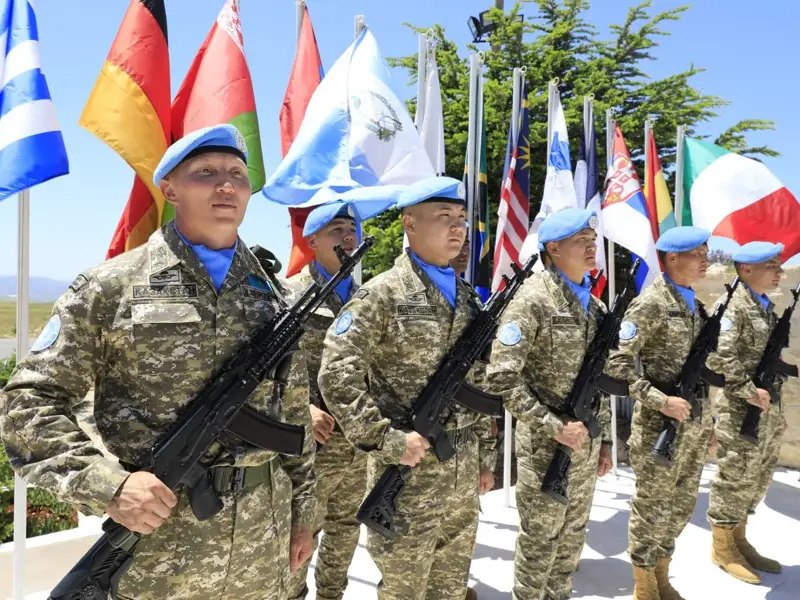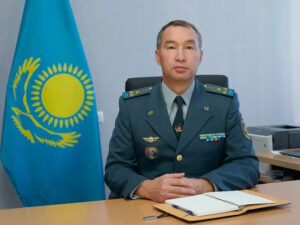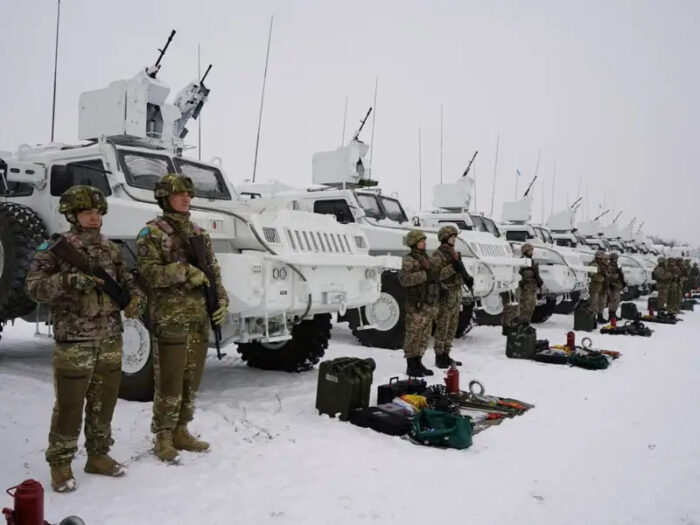ASTANA – The Kazakh Parliament has recently sanctioned the deployment of up to 430 peacekeepers for United Nations missions. The Center for Peacekeeping Operations of the Ministry of Defense (KAZCENT) is engaged in training and preparing specialists for the national peacekeeping contingent. Colonel Bauyrzhan Nigmetullin, chief of the center, shared insights with the Kazinform news agency about the center’s activities and outcomes.

Photo credit: Kazinform.kz
When was the KAZCENT established, and what were its initial activities?

Colonel Bauyrzhan Nigmetullin, Chief of the Сenter for Peacekeeping Operations of the Ministry of Defense. Photo credit: Kazinform.
The KAZCENT originated as the Partnership for Peace Training Center in 2006 at the Institute of Foreign Languages under the Ministry of Defense. It underwent reorganization in 2023, becoming the Center for Peacekeeping Operations. Currently, it holds membership in the International Association of Peacekeeping Training Centers (IAPTC) and the Partnership Training and Education Centers Community (PTEC). Over the past two decades, more than 600 service officers from Kazakhstan’s Armed Forces have participated in UN peacekeeping missions across Asia, Africa, and the Middle East, including deployments in Nepal, Ivory Coast, Lebanon, Mali, Western Sahara, and the Central African Republic.
Presently, Kazakh peacekeepers operate in Lebanon, the Western Sahara, the Central African Republic, and the Democratic Republic of the Congo.
What disciplines are integrated into the training program?
The KAZCENT offers training in various disciplines crucial for peacekeeping efforts. Courses include an introduction to UN peacekeeping operations, pre-deployment training, legal aspects of peacekeeping operations, the law of armed conflicts, UN staff officers’ roles, and comprehensive civilian protection. This year, our instructors conducted a pilot program on UN military observers. Previously, the training of service officers for participation in UN peacekeeping operations as military observers was handled by foreign specialists. The three-week course program underwent successful testing and evaluation at the center, with plans for certification in the future.

Photo credit: Kazinform.
Participants engage in scenario-based exercises and study international legislation regulating peacekeeping activities. They also practice interacting with various mission components, local authorities, media, and conflicting parties. Practical sessions encompass engineering, medical training, survival in adverse climatic conditions, and rehearsing action protocols in case of attacks, ambushes, and hostage situations.
Could you elaborate on the language training provided at the KAZCENT?
Language training is integral to peacekeeping preparation at the center. English is the primary language for communication in multinational UN missions. Participants undergo military terminology courses in English, where they acquire and practice oral and written military terminology and familiarize themselves with abbreviations. Last year, language training was conducted in English, French, Turkish, and Chinese, with over 200 service people participating in various programs, marking an almost 100% increase compared to the previous year.
Who conducts the training at the center?
All courses are organized and conducted by the instructional staff. They are trained in international specialized centers abroad, with experience in UN missions. They regularly attend international instructor training courses and exchange programs to update educational materials. The KAZCENT service officers also travel abroad as invited instructors.
Considering the growing importance of gender aspects, what initiatives has the KAZCENT taken in this direction?
KAZCENT systematically works to involve more women in peacekeeping activities. It has introduced courses on gender issues, including gender aspects in UN peacekeeping operations and a gender advisor course. The center is the only regional institution preparing specialists in the gender field. During peacekeeping personnel training, the center enhances awareness and gender sensitivity. It focuses on understanding and prioritizing the protection of women’s rights, preventing violence, and ensuring their safety.
Could you highlight the center’s recent achievements?
From April to September, over six months, 250 service officers underwent comprehensive training at the Bitimger training ground. In December, the visit of a UN delegation marked a significant milestone in assessing the contingent’s readiness. Experts conducted a comprehensive inspection of the material and technical base. They also assessed the level of training of Kazakh service officers scheduled for peacekeeping operations.
What are the center’s goals for the future?
The center is committed to preparing peacekeeping personnel for successful participation in UN missions. Plans include systematically expanding the range of foreign languages in the training program, increasing the number of international peacekeeping training courses and their certification, and independently conducting pre-deployment training for the national peacekeeping contingent before missions. An essential aspect of future development involves organizing and conducting off-site courses using mobile training groups and enhancing the participation of center service officers as invited instructors in international courses abroad.
The article was originally published in Kazinform.

